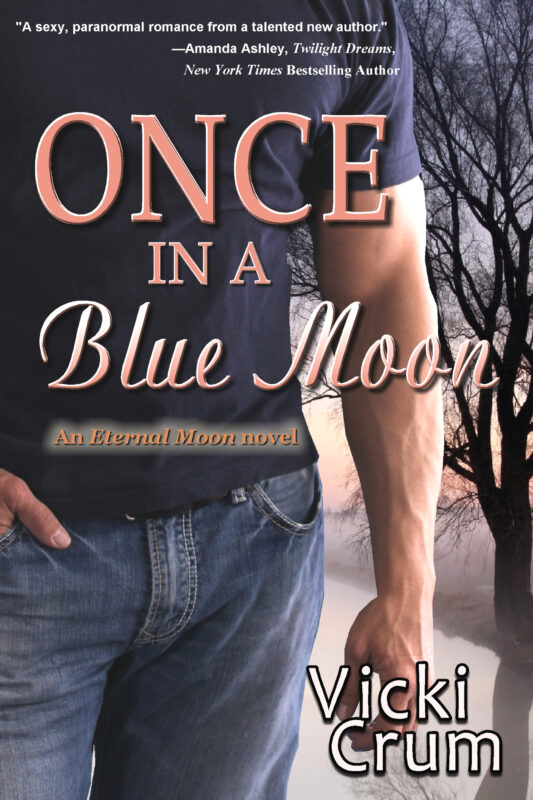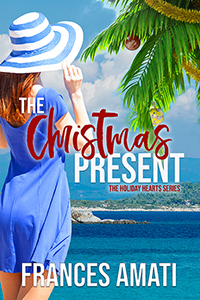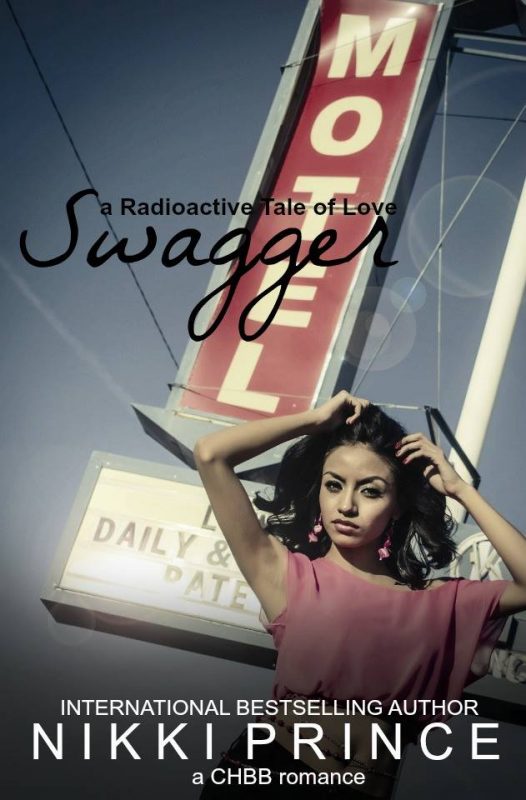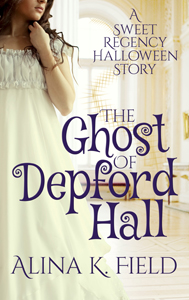The Extra Squeeze Team: We’re Taking Questions
June 14, 2017 by marianne h donley in category The Extra Squeeze by The Extra Squeeze Team tagged as H.O. Charles, Jenny Jensen, Rebecca Forster, Robin Blakely, The Extra Squeeze Team
Send Us Your Questions

Ever wonder what industry professionals think about the issues that can really impact our careers? Each month The Extra Squeeze features a fresh topic related to books and publishing.
Amazon mover and shaker Rebecca Forster and her handpicked team of book professionals offer frank responses from the POV of each of their specialties — Writing, Editing, PR/Biz Development, and Cover Design.
Send The Extra Squeeze Team your Questions.
Your questions and their answers will be posted on the last day of each month.
If you have a topic or question for the Extra Squeeze Team, contact the Extra Squeeze online producer Marianne Donley by using the form below.
The Extra Squeeze Team

USA Today Bestselling author of 35 books, including the Witness series and the new Finn O’Brien series.
Developmental editor who has worked for twenty plus years with new and established authors of both fiction and non-fiction, traditional and indie.


Cover designer and author of the fantasy series, The Fireblade Array
PR/Business Development coach for writers and artists; CEO, Creative Center of America; member, Forbes Coaches Council.

Another Slice of Nature
June 13, 2017 by Sally Paradysz in category From a Cabin in the Woods by Members of Bethlehem Writers Group tagged as inspiration, nature, writing
Sitting in my writing cabin in the woods I have the opportunity to watch nature in all of its richness. I usually play a CD softly while I write, and I allow it to repeat itself for hours on end. It is a loon CD, and I find those haunting voices calming, yet full of mystery. As in nature I never know what will flash by my windows. Most usually my two foxes will come, hoping to catch a meal of squirrel, chipmunk, or turkey. All of those little souls gather under my many bird feeders each morning. I do not necessarily like the thought of that, but we each instinctively do as we do.
 When I see this, I always have a tug-of-war going on inside. Part of me understands the needs of the fox, and the other part of me wants the ‘little ones’ to be okay. But, the fox has to be the way he is. “Do not ask for mangoes in a shoe store,” I once read. This applies to us humans as well. Each of us is our own person. My Maine Coons like to hang out on my screened-in-porch and watch the action, but I would never let them out into the woods. Their instinct is to be with the other animals, and my instinct is to keep them safe. Oh my, the decisions we must make.
When I see this, I always have a tug-of-war going on inside. Part of me understands the needs of the fox, and the other part of me wants the ‘little ones’ to be okay. But, the fox has to be the way he is. “Do not ask for mangoes in a shoe store,” I once read. This applies to us humans as well. Each of us is our own person. My Maine Coons like to hang out on my screened-in-porch and watch the action, but I would never let them out into the woods. Their instinct is to be with the other animals, and my instinct is to keep them safe. Oh my, the decisions we must make.
Whatever is important to us, go forward with commitment. Do not allow ourselves to be tossed to the wayside because of doubt. I have experienced indecision in so many of its ways, and it has kept me in its grips, but not anymore. Write, paint, or sing, with all the passion you have within. Make decisions regardless of the insecurity you might feel. It is a wonderful thing to witness the emergence of a more authentic self. I’ve learned to silence the voices of those who want to keep us narrowly defined, and although these awakenings are never gentle they lead to a process of finding out who we really are…


Sally Paradysz writes from a book-lined cabin in the woods beside the home she built from scratch. She is an ordained minister of the Assembly of the Word, founded in 1975. For two decades, she has provided spiritual counseling and ministerial assistance. Sally has completed undergraduate and graduate courses in business and journalism. She took courses at NOVA, and served as a hotline, hospital, and police interview volunteer in Bucks County, PA. She is definitely owned by her two Maine Coon cats, Kiva and Kodi.
Read Sally’s short story This Business of Wood in ONCE AROUND THE SUN; available in paperback and ebook.
ONCE AROUND THE SUN: Sweet, Funny, and Stranges Tales for All Seasons
Series: A Sweet, Funny, and Strange Anthology, Book 2
Genre: Short Story Anthology
Tags: Anthology, Sweet, Funny, and Strange Tales, The Short Story Award
Stories about winter, spring, summer and fall, and seasons of life, seasons of love, and even seasons of discovery.
More info →Let me TELL you something…
June 12, 2017 by Denise M. Colby in category The Writing Journey by Denise Colby, Writing tagged as Contests, Denise Colby, feedback, Show Don't Tell I took a long walk this morning. Wrote an awesome blog post in my head. The entire time I wished I had my laptop to write down my thoughts. Let me tell you, it was awesome. Of course, as soon as I got home and started to actually write it, well…..the words came out differently. Not as witty. Not as eloquent. My punctuation was off. But trust me. The original in my head? It was awesome. I’m telling you.
I took a long walk this morning. Wrote an awesome blog post in my head. The entire time I wished I had my laptop to write down my thoughts. Let me tell you, it was awesome. Of course, as soon as I got home and started to actually write it, well…..the words came out differently. Not as witty. Not as eloquent. My punctuation was off. But trust me. The original in my head? It was awesome. I’m telling you.
See, my blog post was all about my feelings on the subject of telling vs showing. One of those things every fiction writer needs to learn to write a well-written novel. I apparently haven’t been able to figure it out yet. At least that’s what the latest round of contest remarks tell me.
Of course, I can’t show you their comments, so you’ll have to trust me when I tell you this.
So I took my walk to clear my head because somehow these comments have rattled me. I feel (again I’m telling you here) like giving up, stopping, throwing the entire book away. And I’m not sure what to do about it.
I’ve received lots of feedback over the past four years on my writing journey. I’m usually really good about taking it in stride and learning from it. But this time around it has punched me in the gut and taken all the motivation out of me.
And I’m not sure why.
Ironically, most of the feedback I’ve received, has been over the same set of pages. So really, the feedback isn’t just on my writing, it’s on the however many other contest evaluators and writer friends who have taken their time to give me their honest feedback. Each time I’ve made adjustments and changes, I’ve felt like I’ve gotten closer and closer to a solid beginning. So I find it interesting that what’s been pointed out makes my pages sound worse than where I was before.
I’m telling you, it’s enough to make me really confused.
So as I wallow in my own negative emotions, I reflect back to how I got here. Even in high school my English wasn’t great. I scored higher on my math portion of my SAT then my English. I can spell like the best of them, but making sure I’m staying in either present or past tense throughout the entire sentence is a challenge for me. As well as telling vs showing. That’s what I’m being told.
You’ve probably noticed it all in this post.
I do have a BA in Communication. I landed a great job out of college and my first two bosses were previous English teachers. Go figure. Every assignment I turned in came back with red marks everywhere. But I learned. By the time I went to graduate school to get my MBA, I scored higher on the English then the math. But since I embarked on this fiction writing journey I’ve learned something. Let me tell you – copywriting and fiction writing are two completely different things.
The writing I did in the business world mostly came in bullet points. I told people why they needed to buy a certain product. What that product could do for them and how it would benefit them. In catalogs, flyers, packaging, presentations and brochures. We had to be succinct and to the point. A customer needed to be able to know within a few seconds what this product was and what it could do for them. No room for interpretation, no room for feelings or fluff words as we called it. Just the point.
I was in charge of writing, proofing, and editing our products within our customer catalogs – for thousands of products. To create consistency with my team, I created a catalog copy strategy. Here’s what I instructed them:
For the actual copy block:
- Concise, no fluff words
- Benefit statements
- minimum 2 sentences, maximum 5 sentences
- Doesn’t have to be complete sentences
Example in bullet form of copy block:
- Benefit statement that helps to explain the product concept overall.
- Describe how the product is used.
- Suggest applications for the product.
- Other descriptions of the product including other features, color, size, quantity.
Now here I am writing a novel and my mind is trained in a completely different way. I’m having a difficult time writing the showing parts. I’m pulling my hair out trying to get it. I’m crying over the fact that I have 350 plus pages to go back and redo and think I have it correct, but then find out I don’t. (Did I do it? Showing? Wrong tense, though. Sigh.) I’ll keep trying but the task feels daunting.
So, I need someone to tell me what happens next? I’m stuck. Frozen. Not sure if I can keep going. I know, I know. I just need to keep plugging along. I guess that’s why I wrote this blog post. I needed an outlet to process things. And to write something that’s in my own words, my way and I don’t care what anyone else thinks about it. And when I circle back around to accept things and move on, I still have a manuscript where apparently I’ve been told I’m telling too much. I guess only time will tell if I can show them they were right or wrong.
Denise

Denise M. Colby loves learning about history and reading fun, uplifting, encouraging stories that cherish and warm the heart. Combining two of her loves, she is working on her first inspirational historical romance, featuring Olivia Carmichael, a young lady who loses everything, including her faith, travels to California to teach and finds love in many different forms along the way. Passionate about all types of stories – whether they are from songs, theatre, movies or novels, Denise loves sharing these passions with her husband and their three boys. You can follow along with Denise on her writing journey at www.denisemcolby.com
WEB CONTACTS
Website: www.denisemcolby.com
Blog: www.denisemcolby.com
Facebook: https://www.facebook.com/denisemcolbywrites/
Pinterest: pinterest.com/denisemcolby
Twitter: twitter.com/denisemcolby
My Journey with Kindle Scout continues . . . by Jina Bacarr Part 7: The Prequel to Love Me Forever
June 11, 2017 by Jina Bacarr in category Jina’s Book Chat tagged as Civil War, Confessions of a Podcast Goddess, historical, Jina Bacarr, Kindle, kindle scout, KU, romance, time travel, writingTwo years ago I began a journey.
I traveled from the battlefields of Virginia to the ice-capped mountains of the mythical principality of Monterra. I met generals and princes, fell in love, time-traveled, and learned that even Cinderella needs a second chance.
It all began with Kindle Scout. (My Kindle Scout journey begins with this post HERE.)
Now I’m taking a new turn in the road with my Kindle Scout winner, LOVE ME FOREVER. A prequel to my novel will appear in an anthology SUMMER SOLSTICE with stories from other Kindle Scout winners. It’s FREE and will be available around June 18, 2017.
Why a prequel?
Love Me Forever opens in 1862 with my secondary heroine, Pauletta Sue Buckingham, escaping from the Yankees and then segues to the present day. There we find Liberty wearing a Confederate officer’s uniform. She’s about to get her head blown off in the midst of a reenactment of the Battle of Antietam.
The bloodiest day of the Civil War.
How on earth did Liberty find herself in such a predicament?
Summer Solstice from Kindle Scout Winners inc. Love Me Forever from Jina Bacarr on Vimeo.
In the prequel, you’ll find out what happened that morning before Liberty joined in the reenactment battle.
And what she saw that changed her life.
Forever . . .
Women Soldiers in the Civil War from “Love Me Forever” from Jina Bacarr on Vimeo.
I’ll be entering another novel in the Kindle Scout campaign soon — and yes, it’s a time travel and it takes place during wartime, but that’s all I can say for now! I’m excited to enter it and I’ll post when my campaign is up.
Any questions about the KS program, please ask!
Not only is my KS winner part of Kindle Press, but I was invited to write for Kindle Worlds “The Royal of Monterra” by Sariah Wilson, another Kindle Scout winner. And what a ride that has been.
Here’s a preview.
The Royals of Monterra — 4 books! from Jina Bacarr on Vimeo.
That’s it for this month! See you soon.
Jina
Once upon a Story blog
Facebook: http://facebook.com/JinaBacarr.author
Twitter: http://twitter.com/JinaBacarr
Pinterest: http://www.pinterest.com/jbacarr
Videos: https://vimeo.com/user216350
Amazon Author Page: https://www.amazon.com/-/e/B001IU2P8G
Cut the Fluff
June 10, 2017 by Tari Jewett in category Charmed Writer by Tari Lynn Jewett tagged as cut the fluff, editing, write lean

Write short!
While I consider myself the Queen of Run-On Sentences, because I tend to write the way I talk…in run on sentences, I also tend to write very lean. I know, that may seem contradictory, but it’s true. While author friends are trying to bring their word counts down, cut description and wordiness, I find myself short of my word count goals by as much as 20,000 words. Not a small number. And, fiction editors and critique readers tell me that sometimes I need MORE description.
I’m sure this comes from my non-fiction background. When I wrote magazine articles, I generally had a word count goal around 2,000 words. While each word should count in everything you write, when you’re this limited, each counts double. Every editor I knew had the same mantra, ‘Cut the Fluff’.
This works for me. I want to get to the point. Don’t dilly dally and draw the story out with unnecessary details, or you’ll lose me. TELL ME WHAT HAPPENED.
So, I find myself reading for details that matter. Why did an author put that description there? Was it necessary? Does it give the reader a better picture? Does it move the story forward? Is it something I would normally just skim over as too much detail when I’m reading? Does it make the reader turn the page?
You would think that because of my preference for clean sparse words that I’d read (and write) primarily short stories and novellas, but it’s not true. I read long, I read short, I read flash. I love a good story told in how ever many words it needs.
So back to my problem. Writing too short. I’ve decided it’s not a serious problem. The solution is of course to read, read, read…one of my favorite things to do. And write the words that matter, that of course is the hard part. I’ll keep working on it.
And what about you? Do you find that you write short or long? Sparse or fluffy? War and Peace? Or Flash Fiction?
Affiliate Links
A Slice of Orange is an affiliate with some of the booksellers listed on this website, including Barnes & Nobel, Books A Million, iBooks, Kobo, and Smashwords. This means A Slice of Orange may earn a small advertising fee from sales made through the links used on this website. There are reminders of these affiliate links on the pages for individual books.
Search A Slice of Orange
Find a Column
Archives
Featured Books
THE CHRISTMAS PRESENT
HOW FAR WOULD YOU GO TO PROTECT THE ONES YOU LOVE?
More info →LEIF Viking Glory Book One
Fate brought them together. Free will binds them.
More info →Newsletter
Contributing Authors
Search A Slice of Orange
Find a Column
Archives
Authors in the Bookstore
- A. E. Decker
- A. J. Scudiere
- A.J. Sidransky
- Abby Collette
- Alanna Lucus
- Albert Marrin
- Alice Duncan
- Alina K. Field
- Alison Green Myers
- Andi Lawrencovna
- Andrew C Raiford
- Angela Pryce
- Aviva Vaughn
- Barbara Ankrum
- Bethlehem Writers Group, LLC
- Carol L. Wright
- Celeste Barclay
- Christina Alexandra
- Christopher D. Ochs
- Claire Davon
- Claire Naden
- Courtnee Turner Hoyle
- Courtney Annicchiarico
- D. Lieber
- Daniel V. Meier Jr.
- Debra Dixon
- Debra H. Goldstein
- Debra Holland
- Dee Ann Palmer
- Denise M. Colby
- Diane Benefiel
- Diane Sismour
- Dianna Sinovic
- DT Krippene
- E.B. Dawson
- Emilie Dallaire
- Emily Brightwell
- Emily PW Murphy
- Fae Rowen
- Faith L. Justice
- Frances Amati
- Geralyn Corcillo
- Glynnis Campbell
- Greg Jolley
- H. O. Charles
- Jaclyn Roché
- Jacqueline Diamond
- Janet Lynn and Will Zeilinger
- Jaya Mehta
- Jeff Baird
- Jenna Barwin
- Jenne Kern
- Jennifer D. Bokal
- Jennifer Lyon
- Jerome W. McFadden
- Jill Piscitello
- Jina Bacarr
- Jo A. Hiestand
- Jodi Bogert
- Jolina Petersheim
- Jonathan Maberry
- Joy Allyson
- Judy Duarte
- Justin Murphy
- Justine Davis
- Kat Martin
- Kidd Wadsworth
- Kitty Bucholtz
- Kristy Tate
- Larry Deibert
- Larry Hamilton
- Laura Drake
- Laurie Stevens
- Leslie Knowles
- Li-Ying Lundquist
- Linda Carroll-Bradd
- Linda Lappin
- Linda McLaughlin
- Linda O. Johnston
- Lisa Preston
- Lolo Paige
- Loran Holt
- Lynette M. Burrows
- Lyssa Kay Adams
- Madeline Ash
- Margarita Engle
- Marguerite Quantaine
- Marianne H. Donley
- Mary Castillo
- Maureen Klovers
- Megan Haskell
- Melanie Waterbury
- Melisa Rivero
- Melissa Chambers
- Melodie Winawer
- Meriam Wilhelm
- Mikel J. Wilson
- Mindy Neff
- Monica McCabe
- Nancy Brashear
- Neetu Malik
- Nikki Prince
- Once Upon Anthologies
- Paula Gail Benson
- Penny Reid
- Peter Barbour
- Priscilla Oliveras
- R. H. Kohno
- Rachel Hailey
- Ralph Hieb
- Ramcy Diek
- Ransom Stephens
- Rebecca Forster
- Renae Wrich
- Roxy Matthews
- Ryder Hunte Clancy
- Sally Paradysz
- Sheila Colón-Bagley
- Simone de Muñoz
- Sophie Barnes
- Susan Kaye Quinn
- Susan Lynn Meyer
- Susan Squires
- T. D. Fox
- Tara C. Allred
- Tara Lain
- Tari Lynn Jewett
- Terri Osburn
- Tracy Reed
- Vera Jane Cook
- Vicki Crum
- Writing Something Romantic
Affiliate Links
A Slice of Orange is an affiliate with some of the booksellers listed on this website, including Barnes & Nobel, Books A Million, iBooks, Kobo, and Smashwords. This means A Slice of Orange may earn a small advertising fee from sales made through the links used on this website. There are reminders of these affiliate links on the pages for individual books.














































